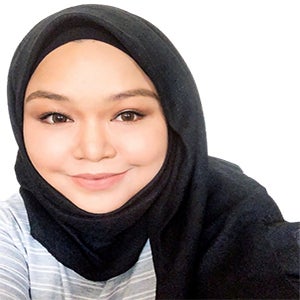Is it important to teach kids about politics?

MY family is super political and I am kind of proud of that now as compared to say 10 years ago when I would roll my eyes in disgust when heated political discussions were happening at my Opah’s dinner table every Saturday. And yes we would talk politics on Saturdays. My late grandfather at the time, a staunch Umno supporter as all pre-independence Malaya Malays were (well mostly) would lead and his sons would battle it out.
Don’t worry everyone is still friends. I think. At 15, I attended my first Reformasi rally in 1998, with my dad after the public had taken to the streets in the capital in a show of anger after current Prime Minister Datuk Seri Anwar Ibrahim was sacked as deputy prime minister by his then boss, Tun Dr Mahathir Mohamad.
Oh the discussions and debates at Opah’s table then would have rivalled any podcast now. Pity podcasts weren’t the thing yet back then. There was a lot of shouting. My dad sided with Anwar (at the time of course) but let’s not get into that, because the point of this whole piece is why I feel politics should be taught to kids.
And now as an adult I can see the benefits of both my parents exposing me to politics and political processes at a young age. Politics is often considered to be ‘grown-ups’ business’ and not something that children need to be concerned about. But although your child may be years away from voting age, it’s never too soon to start cultivating their interest in how government and the law work.
Teaching your child about politics isn’t just about making sure they vote once they’re able to. Politics governs everything we do in life, and is relevant even to young children.
International Islamic University Malaysia (IIUM) Political Science Associate Professor Dr Syaza Shukri said even in the first year of primary school, children will learn about concepts like fairness, sharing and equality.These may not seem overtly political, but they’re all part of living in a democracy.
"I strongly believe that it is important to teach children about the basics of living in society from a young age, even in primary school.
"We don't have to call it politics per se just civic education about respect and tolerance. Maybe in lower secondary students can be introduced about the political system, how to be a good citizen, education on politics doesnt necessarily have to be about party politics," she explained.
Universiti Kebangsaan Malaysia Ethnic Studies deputy director Institute Professor Dr Kartini Aboo Talib concurred.
"Nurturing the understanding of democracy, the process has to begin early.
"Learning about democracy can be created according to age cohorts. For example, in the USA, preschoolers have early exposure to how a bill becomes a law through a visual song," she told Sinar Daily
Kartini added that it was essential to learn about politics in primary school, and the syllabus can be crafted creatively to make learning politics and government a fun and pragmatic subject.
During election times, children would often have lots of questions about politics, especially when they see the posters in people’s windows and manifestos arriving on your doormat. Answering their questions about how local and central government works – rather than dismissing them as subjects that your child doesn’t need to know about – will help them become better informed.
Unsurprisingly, the way you talk to your child about politics and the depth that you go into will change as they get older. When you’re talking to your five-year-old, for example, you probably won’t even mention the word ‘politics’, but are more likely to be explaining why it’s important to be kind, take turns and listen to what other people have to say.
When they get older, children may be interested in the ins and outs of how Parliament works, what the different political parties stand for and what the Government actually does, and talking about wider concepts like democracy and the rule of law. And by the time your child moves up to secondary school, other more complex topics can be covered.
It can be hard to know where to start with talking to your child about politics, but it’s not as difficult as it sounds. There’s a wealth of information and opportunities to help you initiate discussions, answer questions.
Sadly, studies have shown that many Malaysian youths are not really interested in politics. It’s significant to note, however, that despite this, a 2021 youth survey showed that while more than two-thirds of youths responded that they were disinterested in politics, many were interested in volunteerism and community-building initiatives. This is telling: politics and policies may feel distant and irrelevant, but if youths are interested in making a difference, parents can help them understand that serving communities and politics go hand in hand.
In the 15th General Election, despite political parties not hedging their bets on youth voters, it was reported that those between age 18 and 30 made up about 75.6 per cent of the voter turnout.
It was also reported that a majority of youth votes went to PN, allowing the coalition to secure the second-highest number of parliamentary seats at 74, after Pakatan Harapan (PH) that secured 82 seats; Umno-BN only managed to get 30 seats.
As for the state elections, national news agency Bernama reported that more than 50 per cent of the 9.67 million eligible voters in Kedah, Penang, Kelantan, Terengganu, Negeri Sembilan and Selangor were youths aged 39 and below, of which 661,905 were between 18 and 20 years old; 2.16 million between 21 and 29; and 2.16 million aged 30 to 39.















